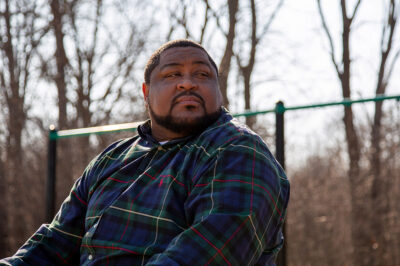NY's Internet Censorship Law Crosses State Lines, Violating Commerce Clause and Free Speech Rights
FOR IMMEDIATE RELEASE
NEW YORK — Residents of the Big Apple are known for thinking that New York is the center of the universe, but a state Internet censorship law extends that viewpoint too far, the American Civil Liberties Union says.
In challenging the law, the ACLU said that the New York Act, like the federal Communications Decency Act now under Supreme Court Review, violates the First Amendment because it would unconstitutionally reduce all speech on the Internet to a level suitable for a six-year-old.
In oral argument before federal district Judge Loretta A. Preska in Manhattan this Tuesday, April 22, ACLU attorney Ann Beeson will argue that New York’s Internet censorship law also violates the Constitution’s Commerce Clause because it would criminalize online conversations that occur entirely outside the state’s borders.
The New York law is a “classic violation of the Commerce Clause,” said Beeson, citing a 1945 Supreme Court ruling striking down an Arizona law that burdened interstate commerce by limiting railway trains’ length to 14 cars. The cases are analogous, Beeson said, because railway cars, like the Internet, cross state borders.
“The Internet is much like the railroad system, because it is used to transport speech and information all over the country. New York’s law violates the Commerce Clause because it would require a Texan who posts a web page or a message to abide by New York standards, even if no one from New York ever sees the page or reads the post,” Beeson said.
The case began earlier this year, when the ACLU, the New York Civil Liberties Union, the American Library Association and others filed a legal challenge to the New York Act, seeking a preliminary injunction against its enforcement. During courtroom testimony earlier this month, witnesses testifying to the law’s chilling effect included a librarian, an artist, the moderator of a gay online forum, and an ACLU official.
The ACLU’s Ann Beeson said that she would also emphasize in oral argument that the availability of filtering software such as Net Nanny allows parents to determine the kind of material their children can see online.
“In contrast to existing filtering programs, the New York state law will do nothing to protect children from so-called indecent words and images posted from outside of New York state — and indeed from outside of the United States, where over 40 percent of material on the Internet originates,” Beeson added.
Oral argument is scheduled for 2:00 p.m. on Tuesday, April 22 and will take place in Judge Preska’s courtroom at 500 Pearl Street, 12th floor, in downtown Manhattan. Judge Preska is expected to rule on the motion at a later date.
The ALA v. Pataki plaintiffs are: the American Library Association, the Freedom to Read Foundation, the New York Library Association, the American Booksellers Foundation for Free Expression, Westchester Library System, BiblioBytes, Association of American Publishers, Interactive Digital Software Association, Magazine Publishers of America, Public Access Networks Corp. (PANIX), ECHO, NYC Net, Art on the Net, Peacefire and the American Civil Liberties Union.
Michael Hertz , Anat Hakim and others of the New York firm Latham & Watkins provided pro- bono assistance to the ACLU and NYCLU; Michael Bamberger of Sonnenschein Nath & Rosenthal in New York is also co-counsel in the case. Lawyers from the ACLU are Chris Hansen, Ann Beeson and Art Eisenberg, legal director of the NYCLU.
Stay Informed
Sign up to be the first to hear about how to take action.





